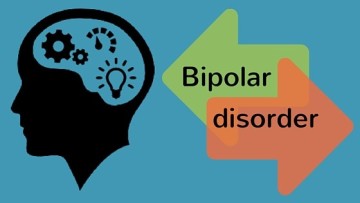- Home
- Editorial
- News
- Practice Guidelines
- Anesthesiology Guidelines
- Cancer Guidelines
- Cardiac Sciences Guidelines
- Critical Care Guidelines
- Dentistry Guidelines
- Dermatology Guidelines
- Diabetes and Endo Guidelines
- Diagnostics Guidelines
- ENT Guidelines
- Featured Practice Guidelines
- Gastroenterology Guidelines
- Geriatrics Guidelines
- Medicine Guidelines
- Nephrology Guidelines
- Neurosciences Guidelines
- Obs and Gynae Guidelines
- Ophthalmology Guidelines
- Orthopaedics Guidelines
- Paediatrics Guidelines
- Psychiatry Guidelines
- Pulmonology Guidelines
- Radiology Guidelines
- Surgery Guidelines
- Urology Guidelines
Bipolar disorder patients with low BMI , special diet respond better to treatment

According to a new study treatment of Bipolar Disorder may be influenced by weight reduction and the overall quality of diet.It was shown that those patients who have a high-quality diet, a less inflammatory diet, and/or a low BMI may respond better to an add-on nutraceutical treatment provided as part of a clinical trial.
This implies that some mental health problems could benefit from the inclusion of dietary advice. The study has been presented at the ECNP Conference in Barcelona.
Bipolar Disorder is characterized by episodes of mood swings, between being very up or very down with periods in between the two extremes. It is difficult to effectively treat Bipolar Disorder as it has two opposite sets of symptoms of elation and depression.While current medications are useful, they are better at targeting mania symptoms, leaving a lack of effective treatment for people experiencing depressive episodes.
"If we can confirm these results, then it's good news for people with Bipolar Disorder, as there is a great need for better treatments for the depressive phase of Bipolar Disorder" said lead researcher Melanie Ashton of Deakin University in Australia.
A total of 133 participants were randomly assigned to take a combination of nutraceuticals (compounds derived from foods such as vitamins or minerals that treat or prevent a disease or disorder) including the anti-inflammatory amino acid n-acetylcysteine (NAC), or NAC alone, or a placebo (a dummy pill) for 16 weeks. Participants received the study medication in addition to any stable treatments they were already receiving. Researchers measured BMI at the beginning of the study, and then measured depression and how a person is able to function in their day to day life. Researchers also rated whether a participant was improving and, if so, how much, over the next 20 weeks. Participants filled in a questionnaire about what they usually eat over the year and researchers calculated a diet quality score, where good diets included a healthy diet with lots of fruit and vegetables, whereas poorer-quality diets had more saturated fat, refined carbohydrates and alcohol. These types of diets were then categorised as either anti-inflammatory or pro-inflammatory based on foods that affect inflammation.
Melanie Ashton continued, "We found that people who had a better-quality diet, a diet with anti-inflammatory properties, or a lower BMI, showed better response to add-on nutraceutical treatment than did those who reported a low-quality diet, or a diet including foods that promote inflammation, or who were overweight.
What this means, if these results can be repeated in a larger trial, is that treatment for Bipolar Disorder would need to take into account what a person eats and their weight.
There are some points we need to note about this study. This is a randomised, controlled trial, but what we found were exploratory outcomes; in other words, it wasn't the main result that we were testing. Our result is statistically significant, but because the study wasn't specifically designed to test the effect of diet quality,
inflammatory diets and BMI on drug response in general, it is necessary to see the work replicated in a larger study before any firm conclusions can be formed".
Commenting, Professor Eduard Vieta (Barcelona) said:
"This is interesting work, which holds out the possibility that patients with Bipolar Disorder may benefit from a balanced diet. However, it is an early study, and we need more research before we can think whether this might affect clinical practice".
Professor Vieta was not involved in this work, it is an independent comment.

Disclaimer: This site is primarily intended for healthcare professionals. Any content/information on this website does not replace the advice of medical and/or health professionals and should not be construed as medical/diagnostic advice/endorsement or prescription. Use of this site is subject to our terms of use, privacy policy, advertisement policy. © 2020 Minerva Medical Treatment Pvt Ltd